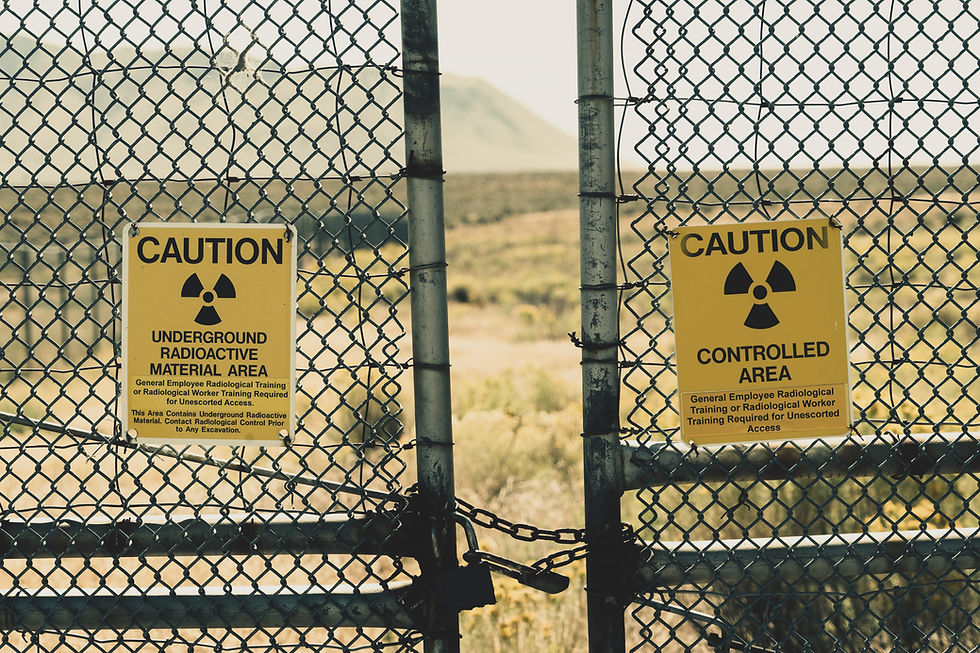Turkey begins construction on the final reactor of its first nuclear power plant.
- Enzo Willems

- Jul 26, 2022
- 3 min read
Turkey began construction on Thursday of the fourth and final reactor of its first nuclear power plant, which is being built by Russia on the Mediterranean coast.
The new phase of the Akkuyu Nuclear Power Plant (NPP) project, Turkey's and Russia's largest energy project, was unveiled in a groundbreaking ceremony attended by officials from both countries.

Rosatom, Russia's state nuclear energy company, is building the plant on the Mediterranean coast of Mersin province in southern Turkey. In 2010, the two countries signed a cooperation agreement, and construction began in 2018.
"The light at the end of the tunnel has now begun to appear in Turkey's more than half-century-long nuclear energy journey," Energy and Natural Resources Minister Fatih Dönmez said.
The first of four units in the plant is expected to be operational by the middle of 2023, on the 100th anniversary of the Republic of Turkey's founding.
Dönmez said at the ceremony, which was also attended by Rosatom head Alexei Likhachev and other high-level officials, that once completed, the plant, which is expected to produce 35 billion kilowatt-hours (kWh) of electricity annually, will meet about 10% of domestic electricity needs.
According to the minister, the factory in its current form is one of the world's largest building sites.

According to Dönmez, nuclear power is a significant alternative for addressing Turkey's increased energy demand following the epidemic and for reducing global emissions.
60 percent lifetime service
The other three reactors are scheduled to begin operations by the end of 2026, one per year, for a total installed capacity of 4,800 megawatts (MW).
The second unit began building in June 2020, before Turkey awarded a construction license for the third unit in November of that year.
The plant, which will have a service life of 60 years with the option of additional 20 years, will produce carbon-free electricity around the clock.
It will play a key role in reducing reliance on imported energy resources, particularly natural gas, as a baseload plant.
The massive project is planned to employ approximately 15,000 workers during its peak construction period and approximately 4,000 employees throughout its operational phase.
Turkey plans to build its second and third nuclear power facilities as soon as feasible, according to President Recep Tayyip Erdoan, who stated in September last year.
Akkuyu is the world's first nuclear power plant project built on a build-own-operate approach. Rosatom has promised to deliver the power plant's design, building, maintenance, operation, and decommissioning under the long-term deal.
The company owns 99.2 percent of the project, which is expected to cost over $20 billion and will be the largest investment in Turkey's history to be implemented on a single location.
Through their study overseas, Turkish engineers have also gained the necessary skills and experience to manage nuclear power facilities as part of the initiative.
To date, 246 of 317 students have completed nuclear power education in Russia and are employed at Akkuyu, with the remaining 71 still in training.
"Akkuyu will play a key role not just in producing power, but also in contributing to our green energy objective," Dönmez stated.
Akkuyu will reduce carbon emissions by 35 million tons per year and 2.1 billion tons over its lifetime.

A lengthy nuclear journey
Turkey has had plans to develop a nuclear power plant on its land since the 1950s and 1960s.
Turkey was one of the first countries to sign the "Agreement for Cooperation on Civil Uses of Atomic Energy" in 1955.
The agreement was followed by the foundation of the Turkish Atomic Energy Authority, which was established for the state's scientific and technological growth as well as personnel training.
Turkey was among the first countries to sign the "Agreement for Cooperation on Civil Uses of Atomic Energy" in 1955.
The initial studies on the development of a nuclear power plant began in 1965. In 1974, the Akkuyu location in Mersin's Gülnar neighborhood was deemed appropriate for the construction of the first plant.
Detailed land surveys were done there until 1976, and as a result of the findings, the site was granted a license to develop a nuclear power plant.
Turkey opted to turn to Russia's many years of experience in nuclear technology after a long break owing to financial and political concerns.
"Nuclear energy has moved from a pipe dream to a feasible ambition for Turkey," Dönmez remarked.
Article information from Daily Sabah




Comments